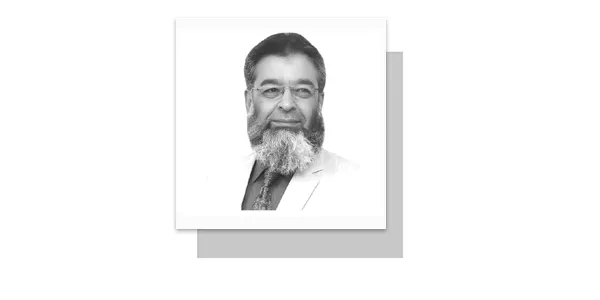THE situation in Syria remains a critical focus for the Middle East and the broader Islamic world, with repercussions that extend beyond its borders to countries like Pakistan. Known historically and spiritually as Bilad al-Sham, Syria holds immense significance in Islamic history and tradition. The Quran and Hadith highlight its sanctity, with the Last Prophet (PBUH) referring to it as a blessed land. Verses in the Quran speak of blessings upon the lands surrounding Masjid al-Aqsa, which include Syria. This rich spiritual legacy makes the current turmoil in Syria all the more tragic.
From the Assyrians and Romans to the Islamic Caliphates, Syria has been a cradle of civilizations. During the Umayyad Caliphate, Damascus thrived as the capital of an empire that shaped Islamic identity. It was a hub of culture, trade and governance, leaving a legacy of glory. However, this contrasts sharply with Syria’s present condition-a land ravaged by war and division. The Syrian civil war, triggered by domestic grievances and exacerbated by international interference, has turned the country into a battleground for competing global and regional interests. External powers have exploited sectarian divides, backing opposing factions to advance their strategic goals. Proxy wars have ensured Syria remains fragmented, a stark reminder of the consequences of disunity in the Muslim world.
The plight of Syria reflects broader challenges faced by Islamic countries. These crises are deeply rooted in historical, political and socio-economic dynamics. Among these is the enduring legacy of colonialism. Arbitrary borders drawn by colonial powers fragmented the Muslim world, creating artificial nation-states that grouped disparate ethnicities and sects or divided cohesive communities. These sowed seeds of conflict, as these nations struggled to forge unified identities amidst deep divisions.
The absence of strong and transparent governance in many Islamic countries exacerbates instability. Autocratic regimes, corruption and a lack of political inclusiveness lead to widespread disenfranchisement and discontent among the populace. These conditions create fertile ground for uprisings, which external actors exploit to advance their interests. The lack of democratic mechanisms and effective institutions further deepens instability, making it difficult for nations to withstand internal and external pressures.
Economic disparities within and among Islamic countries also contribute significantly to their vulnerability. While some nations possess immense wealth due to natural resources, others grapple with poverty and underdevelopment. This disparity weakens the collective bargaining power of the Muslim world. Resource-rich nations often attract foreign meddling, as global powers seek to control these assets by propping up regimes or fueling conflicts. The wealth of these nations, instead of benefiting their people, often becomes a tool for external exploitation.
The lack of unity and cohesion among Islamic countries is another critical issue. While platforms like the Organization of Islamic Cooperation (OIC) exist, they have often failed to play an effective role in addressing the crises facing member states. Disputes between Islamic nations, competing regional ambitions and the influence of foreign powers have hindered collective action. Without a unified front, the Muslim world remains susceptible to external manipulation and internal strife.
Foreign intervention is a recurring theme in the crises faced by Islamic countries. Global powers often interfere in the internal affairs of these nations under the guise of promoting democracy or combating terrorism. In reality, such interventions frequently exacerbate conflicts, destroy infrastructure and destabilize the region. Syria, Iraq, Libya and Afghanistan exemplify how external interference has led to prolonged instability, leaving these nations struggling to rebuild amidst ongoing turmoil.
The lack of investment in education, technological advancement and economic diversification has also left many Islamic countries lagging in global competitiveness. This stagnation limits opportunities for growth and progress, leaving these nations vulnerable to exploitation and unable to assert themselves on the global stage. Without prioritizing these sectors, the Muslim world risks falling further behind in an increasingly interconnected and competitive world.
To address these challenges, the Islamic world must prioritize unity and self-reliance. Collaboration among nations, resolution of internal disputes through dialogue and strengthened institutions are essential for ensuring transparency and accountability. Economic cooperation, technological innovation and investment in education are vital for reducing dependency on foreign powers. These steps can build resilience and empower Islamic nations to chart a path toward sustainable development and peace.
The Quran and Hadith emphasize the values of justice, compassion and collective responsibility. The Syrian crisis is a stark reminder of the consequences of ignoring these principles. As Syria endures its trials, the Quranic assurance that “after hardship comes ease” offers hope for a better future—not just for Syria but for all nations striving for peace, justice and harmony. It is a call to action for the global Muslim community to alleviate suffering and foster justice. By embracing these values, the Muslim world can overcome its challenges and reclaim its rightful place as a beacon of peace and progress in the global arena.
—The writer is contributing columnist, based in Islamabad.
(ememiqbal68@gmail.com)










